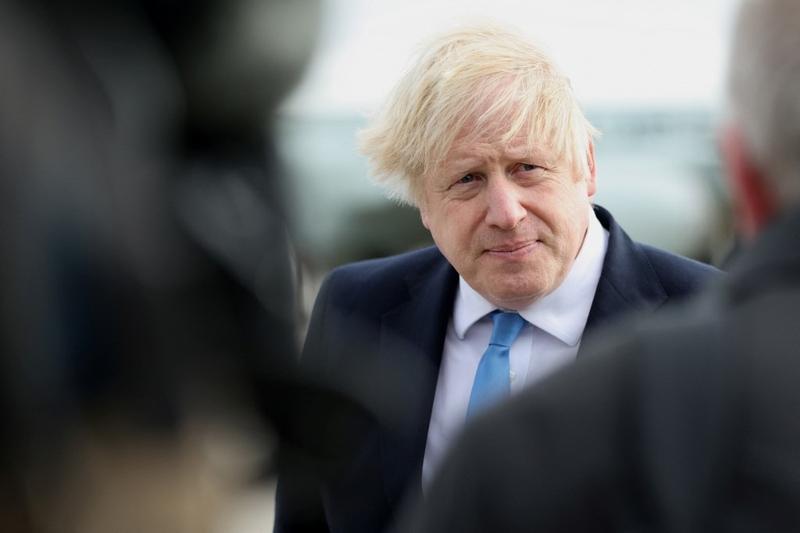 British Prime Minister Boris Johnson visits the Royal Air Force Station in Waddington, Lincolnshire, on Feb 17, 2022. (CARL RECINE / POOL / AFP)
British Prime Minister Boris Johnson visits the Royal Air Force Station in Waddington, Lincolnshire, on Feb 17, 2022. (CARL RECINE / POOL / AFP)
BERLIN / GENEV / OTTAWA / WASHINGTON / CUBA / ADDIS ABABA / CAPE TOWN / LONDON - English medical leaders on Friday urged Boris Johnson not to be too "gung-ho" with the nation's health when he moves to end all pandemic restrictions with his plan to live with COVID-19 next week.
Having scrapped virtually all COVID-19 restrictions in England already, Johnson on Monday will set out plans to go further, indicating he wants to end the legal obligation for people who test positive to self-isolate.
A survey of health leaders by the NHS Confederation found that nearly eight in 10 wanted the public to have access to free tests, while three quarters disagreed with the move to make self-isolation advisory rather than a legal requirement
The government has also drawn up plans to end free lateral flow tests by the summer, and there is speculation over the future of major pandemic surveillance studies, such as the Office for National Statistics' Infection Survey.
A survey of health leaders by the NHS Confederation found that nearly eight in 10 wanted the public to have access to free tests, while three quarters disagreed with the move to make self-isolation advisory rather than a legal requirement.
They said that COVID-19 could disrupt attempts to catch up with non-COVID-19 treatments if it was allowed to surge again.
"A lot is at stake for the NHS's recovery ambitions if the government is too gung-ho in its plans for exiting the pandemic, which is why health leaders are calling for a cautious and evidence-led approach," said Matthew Taylor, chief executive of the NHS Confederation.
The World Health Organization has said that the quarantine period for people with COVID-19 can be shortened but should be kept. While Johnson intends to scrap the legal requirement to self-isolate, advice to self-isolate would remain.
Britain only introduced the legal obligation to self-isolate in September 2020, after the first national COVID-19 lockdown had already been relaxed, and public health guidance before COVID-19 had rarely been put on a legal footing.
Britain has reported 160,000 deaths from COVID-19 but a successful booster program and Omicron's lower severity has broken the link between cases and deaths, leading Johnson to lift rules limiting social contact and restrictions on the economy.
While daily reported cases have come down since the beginning of the year, prevalence surveys indicate a slower fall and suggest changes in testing behavior might be impacting daily figures.
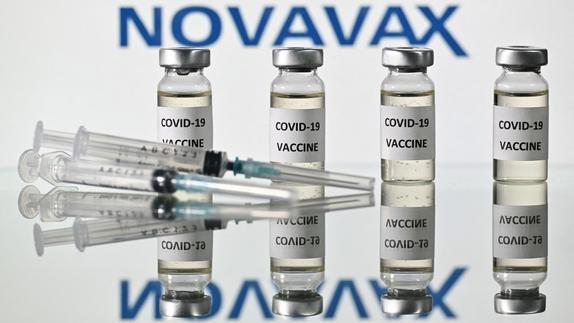
This file photo taken on Nov 17, 2020 shows vials with COVID-19 Vaccine stickers attached and syringes with the logo of US biotech company Novavax. (JUSTIN TALLIS / AFP)
Canada
Canada approved the Novavax COVID-19 vaccine for people aged 18 and over on Thursday, making it the fifth COVID-19 vaccine authorized in the country after AstraZeneca, Moderna, Pfizer and Johnson and Johnson.
Health Canada said in a news release the vaccine is 90 percent effective at preventing symptomatic COVID-19 and 100 percent effective at preventing severe disease.
While additional confirmatory data is needed, preliminary and exploratory data shows that the vaccine, named "Nuvaxovid," does produce neutralizing antibodies against the Omicron variant, Health Canada said.
It is a protein-based vaccine that is administered as a two-dose regimen of 5 mcg per dose, 21 days apart, according to the news release.
Last year, Prime Minister Justin Trudeau announced the government secured a deal with Novavax to produce its vaccine here in Montreal, Canada once it gets approved for use in the country.
Cuba
Cuba's widespread COVID-19 vaccination coverage and early move to inoculate its children proved pivotal in beating back the highly infectious Omicron variant before it ever took hold on the island, local and international experts say.
Omicron arrived in Cuba in December but fell far short of the pronounced spike in cases seen in many other places and infections have since fallen off by more than 80 percent, official data shows.
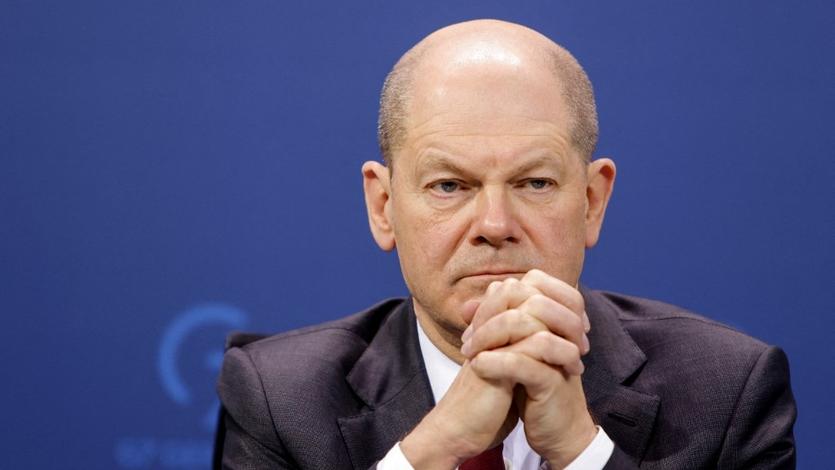 German Chancellor Olaf Scholz addresses a joint press conference with North Rhine-Westphalia State Premier and Berlin's Mayor following a meeting with the 16 state leaders on latest latest COVID-19 measures in Berlin, Germany, on Feb 16, 2022. (MICHELE TANTUSSI / POOL / AFP)
German Chancellor Olaf Scholz addresses a joint press conference with North Rhine-Westphalia State Premier and Berlin's Mayor following a meeting with the 16 state leaders on latest latest COVID-19 measures in Berlin, Germany, on Feb 16, 2022. (MICHELE TANTUSSI / POOL / AFP)
Germany
Germany's seven-day COVID-19 incidence rate continued to fall and reached 1,385 infections per 100,000 inhabitants on Thursday, the Robert Koch Institute for infectious diseases said.
The RKI registered 235,626 new COVID-19 infections within 24 hours on Thursday, around 12,200 less than a week ago.
On Wednesday, the German government agreed on a three-step plan to gradually lift most of the COVID-19 restrictions by March 20
On Wednesday, the German government agreed on a three-step plan to gradually lift most of the COVID-19 restrictions by March 20.
"The peak has now probably been reached," Chancellor Olaf Scholz said as he presented the plan after a meeting with the federal state governments. A "constantly improved situation" can be expected in the coming weeks, he added.
First, Germany would drop the contact restrictions for vaccinated and recovered people as well as the access restrictions for the retail sector with immediate effect. However, the face mask mandate in stores would remain in force.
ALSO READ: Lower test rates 'likely reason' for falling virus case reports
From March 4, restaurants and hotels would only require customers to adhere to the 3G rule (geimpft, getestet, genesen - vaccinated, recovered, tested).
In a final step, all the remaining profound restrictions on social, cultural and economic life are to be gradually lifted by March 20 if the situation in hospitals allows, but the "basic protection measures," such as the wearing of face masks on public transportation or in enclosed public spaces would remain in force.
Scholz warned his compatriots not to become careless despite all the optimism. "The pandemic is not over yet," he said, adding that "vaccination helps and protects the most against the consequences of infection."
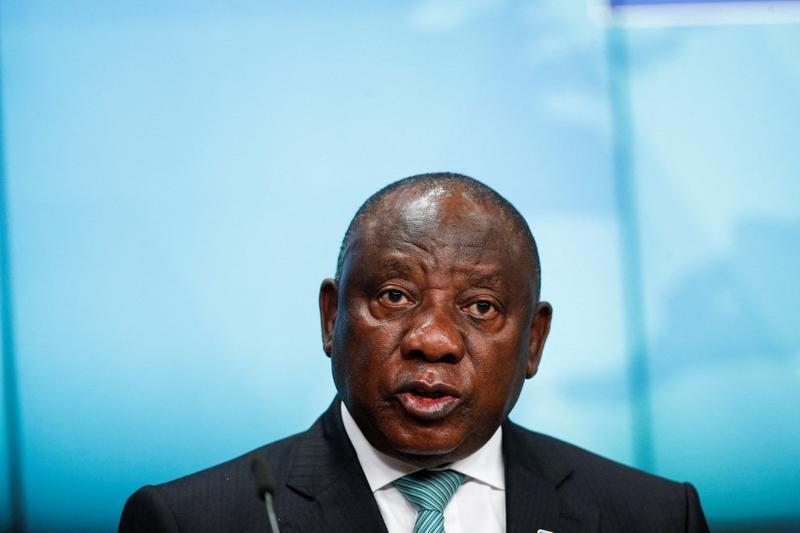 South Africa's President Cyril Ramaphosa gives a statement on the COVID-19 vaccination on the second day of a European Union African Union summit at The European Council Building in Brussels on Feb 18, 2022.
(JOHANNA GERON / POOL / AFP)
South Africa's President Cyril Ramaphosa gives a statement on the COVID-19 vaccination on the second day of a European Union African Union summit at The European Council Building in Brussels on Feb 18, 2022.
(JOHANNA GERON / POOL / AFP)
South Africa
South African President Cyril Ramaphosa said on Friday that the global vaccine distribution scheme COVAX and vaccines alliance GAVI should commit themselves to buying vaccines from local manufacturing hubs.
"The lack of a market for vaccines produced in Africa is something that should be concerning to all of us. Organizations such as COVAX and GAVI need to commit to buying vaccines from local manufacturers instead of going outside of those hubs that have been set up," Ramaphosa said.
He was speaking after the World Health Organization announced the first six African countries, including South Africa, to receive the technology needed to produce mRNA vaccines.
Spain
The 14-day incidence of COVID-19 cases in Spain has dropped below 1,000 cases per 100,000 inhabitants for the first time in 2022, official figures show.
The 14-day incidence dropped from 1,060.46 cases per 100,000 on Wednesday to 984.33 cases - the first time below 1,000 since Dec 23 last year, according to the daily report released by the Spanish Ministry of Health on Thursday.
The improvement of the situation is also reflected in a reduction in the number of patients in intensive care units with 1,351 patients currently occupying 14.48 percent of intensive care beds in Spain, below the 15 percent dividing line between "high" and "medium" risk.
The ministry also confirmed 4,213 new cases and a further 360 deaths, lifting the total number of COVID-19 cases since the start of the pandemic to 10,778,607 cases, while the total number of deaths in Spain has climbed to 97,710.
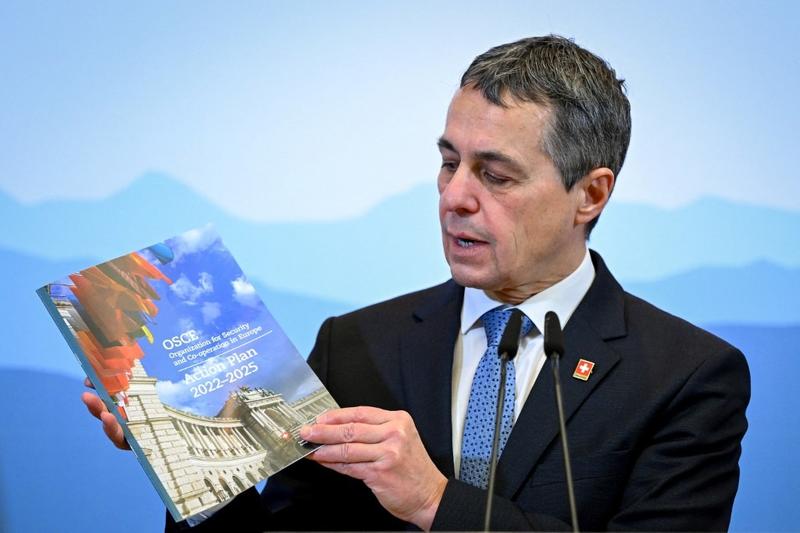 Swiss President Ignazio Cassis holds a document on the Swiss goals within Organization for Security and Co-operation in Europe during a press conference following his bilateral meetings with US Secretary of State and Russian Foreign Minister in Geneva on Jan 21, 2022. (FABRICE COFFRINI / AFP)
Swiss President Ignazio Cassis holds a document on the Swiss goals within Organization for Security and Co-operation in Europe during a press conference following his bilateral meetings with US Secretary of State and Russian Foreign Minister in Geneva on Jan 21, 2022. (FABRICE COFFRINI / AFP)
Switzerland
Swiss President and Foreign Minister Ignazio Cassis has tested positive for COVID-19, said a government statement on Thursday.
"At the end of Wednesday afternoon, the President of the Confederation Ignazio Cassis underwent a PCR test in view of his participation in the Munich Security Conference. The test came back positive and the president went into self-isolation this morning as soon as he learned of the test result," the statement said.
It added that Cassis has no symptoms and is in good health, and will continue his work from home until Sunday.
"Until then, he will not participate in any planned events and will therefore not attend the Munich Security Conference, which will take place on Friday and Saturday this week," the statement said.
Starting from Thursday, Switzerland has dropped most of its measures in place to contain the pandemic: Masks are no longer mandatory in shops and restaurants; people don't need to show a COVID-19 certificate to enter indoor venues; and the restrictions on the size of private gatherings and large events are also lifted.
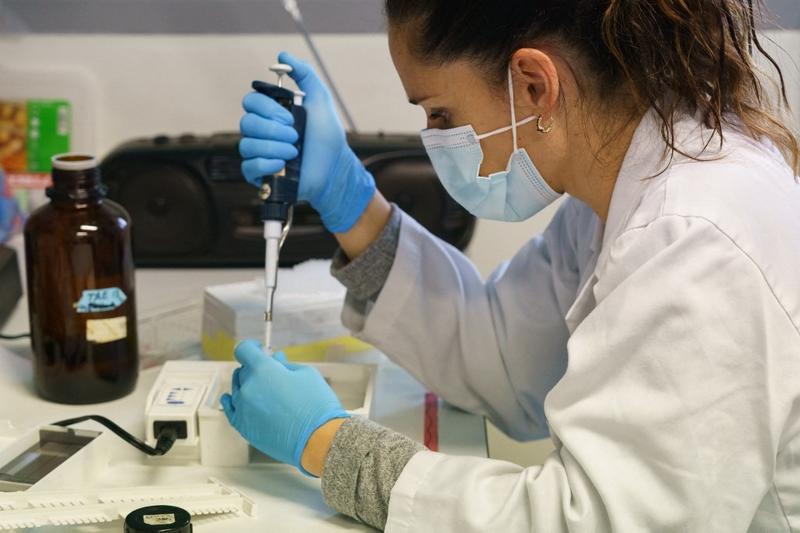 A researcher at the Institute of Molecular Biology and Genetics of the University of Valladolid works on searching a vaccine against COVID-19, at a laboratory in Valladolid on Nov 10, 2020. (CESAR MANSO / AFP)
A researcher at the Institute of Molecular Biology and Genetics of the University of Valladolid works on searching a vaccine against COVID-19, at a laboratory in Valladolid on Nov 10, 2020. (CESAR MANSO / AFP)
US
US researchers have identified "rogue antibodies" that correlate with severe illness and may help explain mechanisms associated with severe COVID-19 blood clotting, according to a release of the US National Institutes of Health on Thursday.
After studying blood samples from 244 patients hospitalized for COVID-19, a group of researchers at the NIH and other institutions found circulating antiphospholipid antibodies, which can be more common among people with autoimmune disorders, such as lupus.
However, these "autoantibodies," which target a person's own organs and systems, can also be activated in response to viral infections and activate other immune responses, according to the NIH.
The researchers compared the blood samples to those from healthy controls, and found the COVID-19 samples contained higher levels of the antibody IgG, which works with other immune cells to respond to immune threats.
Higher levels of IgG were also associated with COVID-19 disease severity, such as in patients who required breathing assistance, according to the NIH.
The researchers noted future studies could explore the potential benefits of screening patients with COVID-19 or other forms of critical illness for antiphospholipids and other autoantibodies and at earlier points of infection.
This may help identify patients at risk for extreme blood clotting, vascular inflammation, and respiratory failure, according to the NIH.
WHO
The World Health Organization said on Friday six African countries - Egypt, Kenya, Nigeria, Senegal, South Africa and Tunisia - would be the first on the continent to receive the technology needed to produce mRNA vaccines.
The technology transfer project, launched last year, aims to help low- and middle-income countries manufacture mRNA vaccines at scale and according to international standards.
mRNA is the advanced technology used by companies such as Pfizer-BioNTech and Moderna for their COVID-19 shots.
The WHO established its global mRNA technology transfer hub after vaccine hoarding by wealthy countries and by companies that prioritised sales to governments that could pay the highest price. This pushed low- and middle-income countries to the back of the queue for COVID-19 vaccines.
WHO Director-General Tedros Adhanom Ghebreyesus said the COVID pandemic had demonstrated more than any other event how reliance on a few companies to supply global public goods was both limiting and dangerous.


